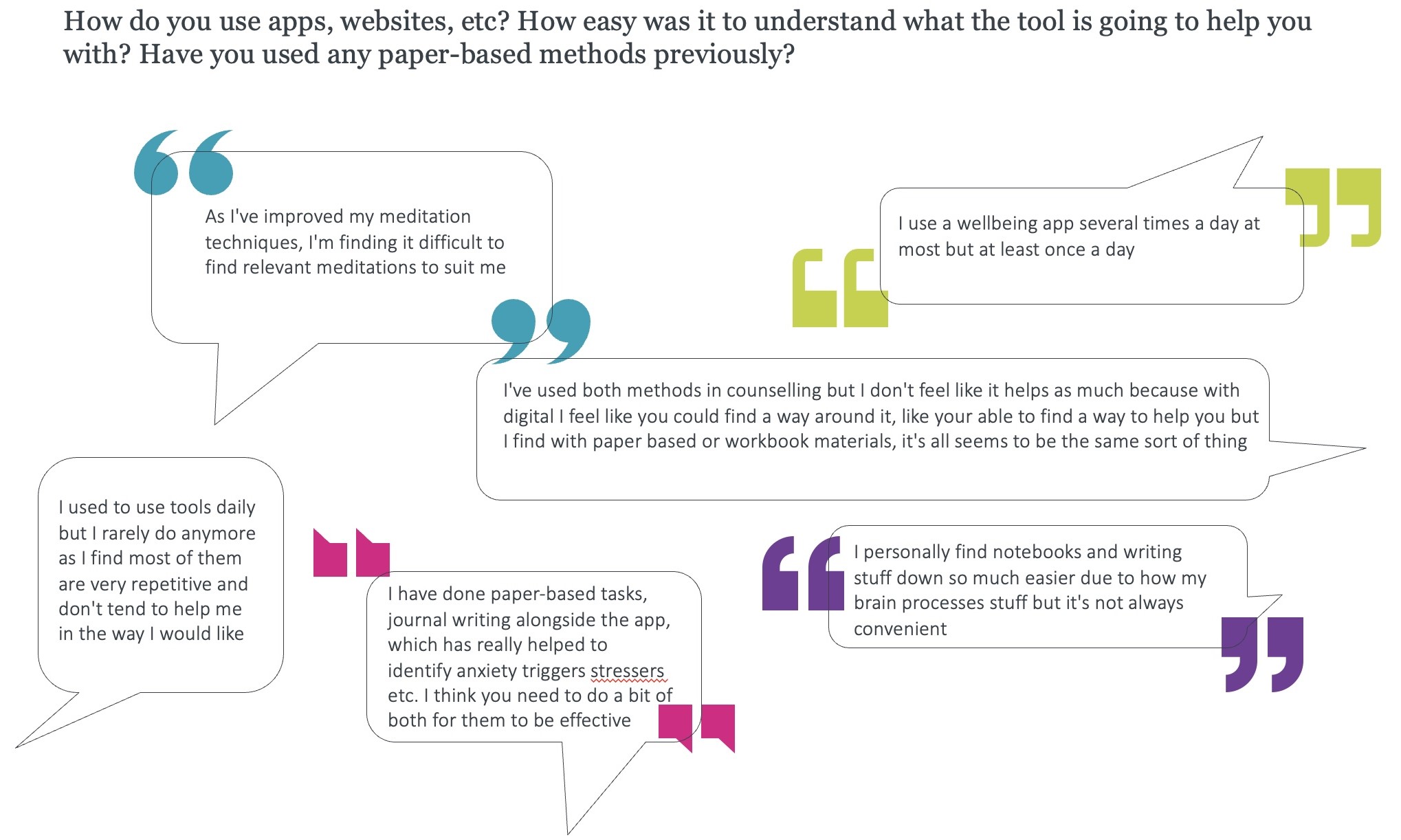
latest
How often do people make use of digital tools for mental health support?
People using wearable apps for mental health support access them more frequently than those using other digital tools

“I used to use tools daily but I rarely do anymore as I find most of them are very repetitive and don't tend to help me in the way I would like.” Online workshop participant
One in five people using smartphone apps to support their mental health access the apps more than once a day, research has found.
FCC commissioned ZPB to carry out research into the use of digital technology among people with mental health problems. The research included a survey of 515 respondents and a two-day online workshop with 15 participants.
The majority of survey respondents (446) used smartphone apps, with smaller numbers using web-based apps (218), wearables (131) and virtual reality (27).
Those using wearables appeared to be the heaviest users, with 41% using them more than once a day, and 37% using them once a day.
Smartphone app users came second, with 24% using them once a day and 22% using them more than once a day. Another 27% used them a few times a week.
Users of web-based apps and virtual reality tools accessed them much less frequently – with only 12% of the former, and 15% of the latter using them more than once a day.
This is perhaps not surprising, as users will have wearables and smartphones with them throughout the day, making them much easier to access.
Apps the only source of mental health support for many
For the majority of people using smartphone app and wearables, the digital tools were either their only source, or their main source, of mental health support. One in four smartphone users, and just under one in five of wearable users, said the tools were the only thing they used to support their mental health. Slightly more than half of the users of web-based apps and virtual reality, however, said the tools were “one among many things” they used to support their mental health.
Qualitative data from the online workshop hinted at the downsides of easy accessibility. One wrote: “I used to use tools daily but I rarely do anymore as I find most of them are very repetitive and don’t tend to help me in the way I would like.”
Another said: “As I’ve improved my meditation techniques, I’m finding it difficult to find relevant meditations to suit me.”
